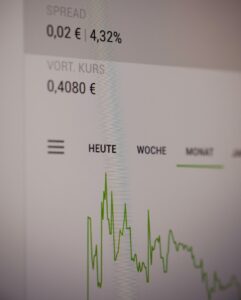Understanding the Regulations and Laws Governing Forex Brokers in Saudi Arabia
The foreign exchange market, often referred to as forex, is a decentralized global market where currencies are traded. It is the largest and most liquid financial market in the world, with an average daily trading volume of $6.6 trillion. Forex brokers play a crucial role in facilitating these transactions, acting as intermediaries between traders and the market. However, operating as a forex broker comes with a set of regulations and laws that vary from country to country. In this article, we will focus on the regulations and laws governing forex brokers in Saudi Arabia.
Forex trading is gaining popularity among Saudi Arabian investors, with an increasing number of individuals and institutions participating in the market. To ensure the protection of investors and the stability of the financial system, the Saudi Arabian Monetary Authority (SAMA) acts as the central bank and regulator of the forex industry in the country.
SAMA has established a comprehensive regulatory framework for forex brokers operating in Saudi Arabia. The key regulations and laws governing forex brokers in the country include:
1. Licensing: Forex brokers in Saudi Arabia are required to obtain a license from SAMA before they can offer their services to investors. This license ensures that the broker meets certain minimum capital requirements, has a solid financial standing, and adheres to strict operational guidelines.
2. Capital Requirements: Forex brokers must maintain a minimum capital requirement to ensure their financial stability and ability to meet their obligations towards clients. The specific capital requirement varies depending on the type of license obtained and the services offered by the broker.
3. Client Protection: SAMA places great importance on investor protection. Forex brokers are required to implement robust risk management systems and maintain segregated client accounts to ensure the safety of client funds. They must also provide clear and transparent information to clients regarding the risks associated with forex trading.
4. Anti-Money Laundering (AML) Measures: Forex brokers in Saudi Arabia are obligated to implement stringent AML measures to prevent money laundering and the financing of terrorism. They are required to conduct thorough customer due diligence, monitor transactions for suspicious activities, and report any suspicious transactions to the authorities.
5. Transparency and Disclosure: Forex brokers must provide clients with comprehensive information about their services, fees, and trading conditions. They are required to disclose any potential conflicts of interest and ensure that clients have a clear understanding of the risks involved in forex trading.
6. Investor Complaints: SAMA has established a mechanism for handling investor complaints against forex brokers. Investors who feel that they have been treated unfairly or have suffered financial losses due to the actions of a forex broker can file a complaint with SAMA, which will investigate the matter and take appropriate action if necessary.
7. Prohibited Activities: Forex brokers in Saudi Arabia are prohibited from engaging in certain activities, such as offering leverage beyond a certain limit, providing investment advice without the necessary licenses, and promoting fraudulent schemes or unauthorized investments.
Compliance with these regulations and laws is essential for forex brokers operating in Saudi Arabia. Failure to comply can result in severe penalties, including the revocation of the broker’s license, fines, and legal actions.
Investors in Saudi Arabia are encouraged to trade with regulated forex brokers to ensure the safety of their funds and the integrity of their transactions. Regulated brokers are subject to regular audits and supervision by SAMA, which helps maintain a fair and transparent trading environment.
In conclusion, the regulations and laws governing forex brokers in Saudi Arabia are designed to protect investors, promote transparency, and maintain the stability of the financial system. Forex brokers operating in the country must obtain a license from SAMA, adhere to strict capital requirements, implement robust risk management systems, and comply with AML measures. Investors are advised to trade with regulated brokers to ensure the safety of their funds and the integrity of their transactions.






